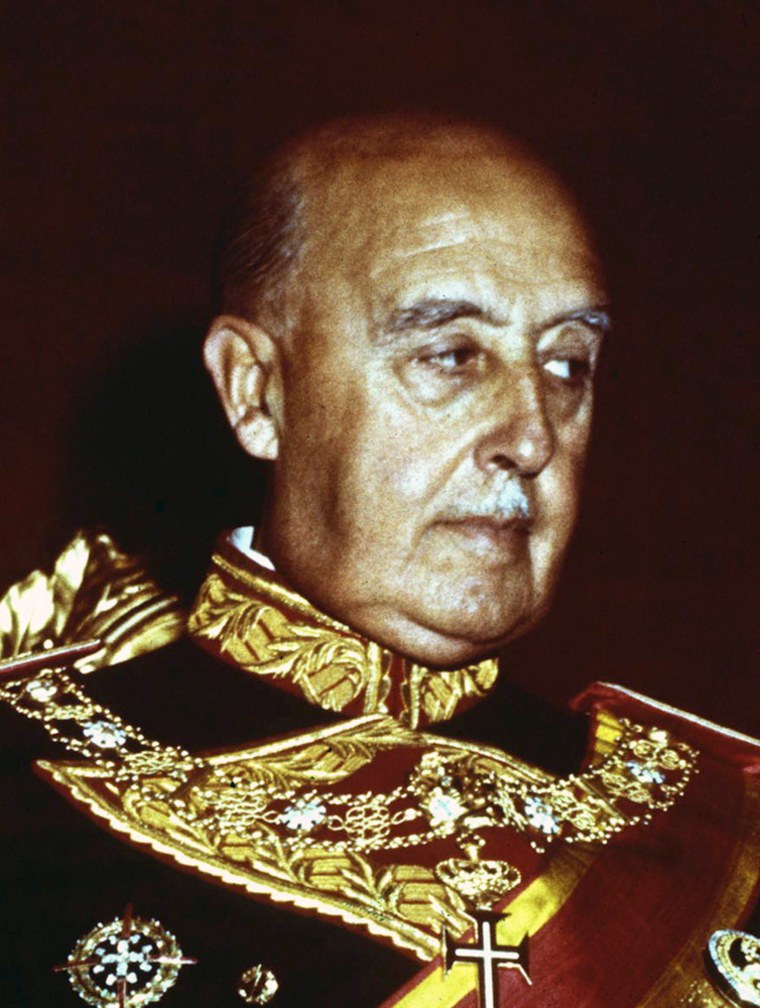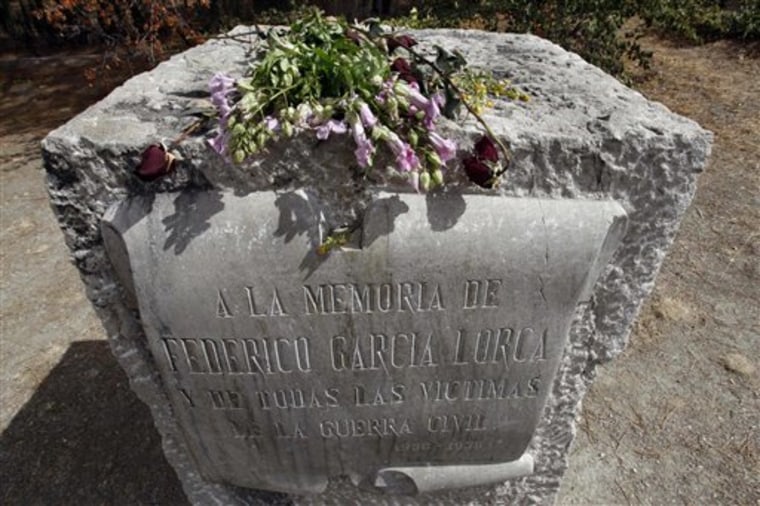Former dictator Gen. Francisco Franco waged a systematic campaign to kill off political opponents during and after the Spanish Civil War, a judge said Thursday as he opened the first formal probe into that divisive time.
Judge Baltasar Garzon of the National Court ordered the urgent exhumation of at least 19 mass graves, which are believed to hold the remains of some of the tens of thousands of people who went missing during the 1936-39 war and the early stages of Franco's subsequent right-wing rule.
One grave is believed to contain the body of Federico Garcia Lorca, Spain's most acclaimed 20th-century poet, who was executed in the early days of the war.
Garzon's criminal probe, ordered in a 68-page writ, is the culmination of a decade-old movement for Spain to come to grips with its past atrocities, like Argentina and South Africa have done.
"For relatives of the missing, the torment has been permanent because they did not know if the victims were executed, missing, or if they were alive or dead, which turned them into victims as well," Garzon wrote.
Regime of repression
It is unclear, however, if Garzon will ever find anyone to charge. Franco himself died in 1975. But the judge ordered the Interior Ministry to help him identify former senior members of the Falange Espanola, the powerful political party that backed up the regime, to see if any are still alive and can be charged.
An estimated 500,000 people died in the Spanish civil war and both sides committed atrocities against civilians. Franco rose up against an elected, leftist Republican government and ultimately ousted it, fighting against Spaniards who backed that government.
The judge said he respects the victims on both sides.
Still, Garzon is essentially focusing on people killed by the pro-Franco side. In his writ, he noted the Franco regime did a thorough accounting of pro-Franco civilians killed by the Republican side and gave them proper burials. British historian Paul Preston, an acknowledged authority, puts this figure at about 55,000 people.
Garzon said more than 114,000 people were reported as having gone missing from the start of the war until 1952, when the Franco regime's repression largely eased.
Franco's wartime forces and the regime "induced and ordered ... systematic and generalized killings, torture and illegal detention of political opponents," Garzon wrote.
Crimes against humanity
Garzon is famous for bringing terrorism and crimes against humanity cases against figures such as the late former Chilean dictator Augusto Pinochet in 1998 and al-Qaida leader Osama bin Laden in 2003.

In those cases, he acted under the principle of universal justice, under which crimes against humanity can be prosecuted in Spain even if they were alleged to have been committed in another country.
In this case, Garzon argues that Franco's campaign to eliminate opponents and hide their bodies is grounds for a crimes-against-humanity case that he says has no statute of limitations.
But prosecutors at the National Court immediately said Thursday they would appeal. They argued Garzon does not have jurisdiction because of a 1977 law granting amnesty for wartime atrocities. That was part of newly democratic Spain's drive to put the war behind it in the interest of rebuilding a ruined nation.
Today's Spanish conservatives are vehemently against the effort to address the country's wartime era and voted against a law passed last year that paid symbolic amends to the country's civilian victims.
Garzon named Franco and 34 other late wartime generals or members of his government as the instigators of the alleged campaign of repression.
